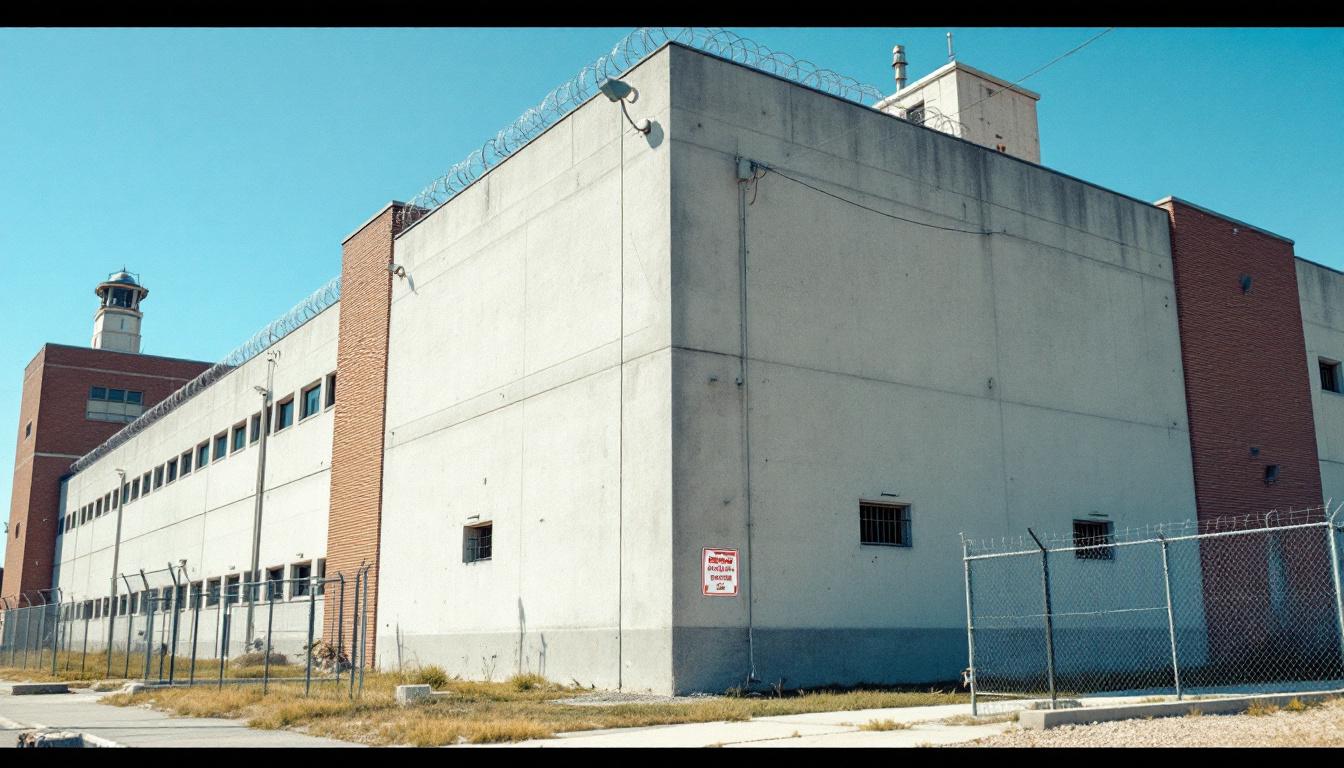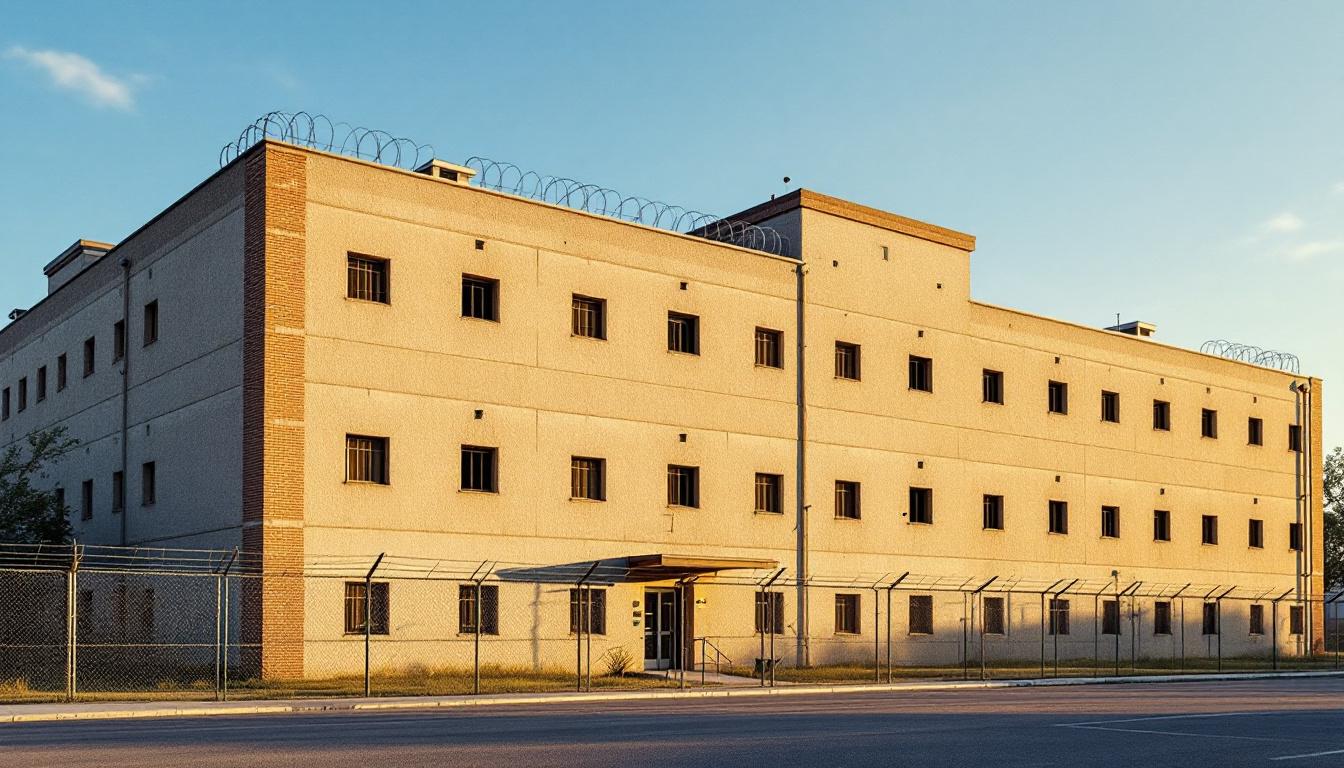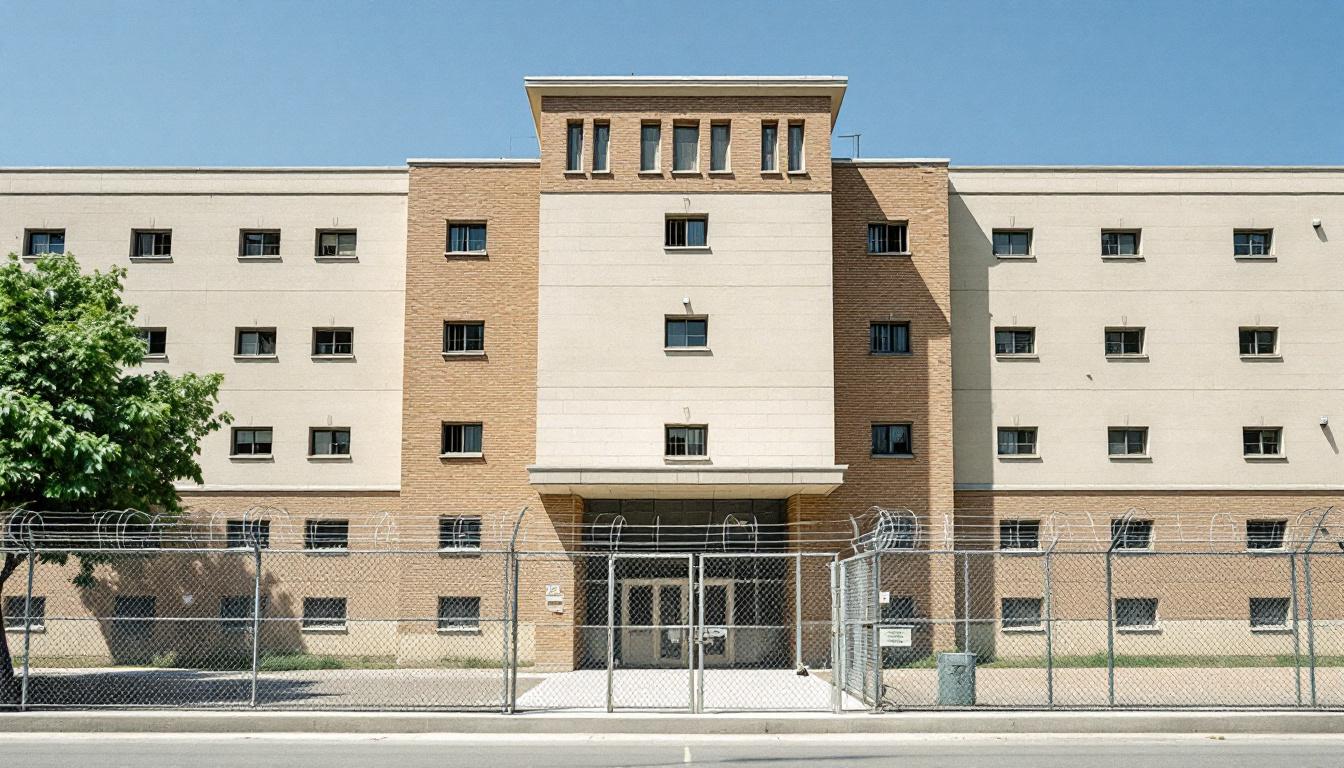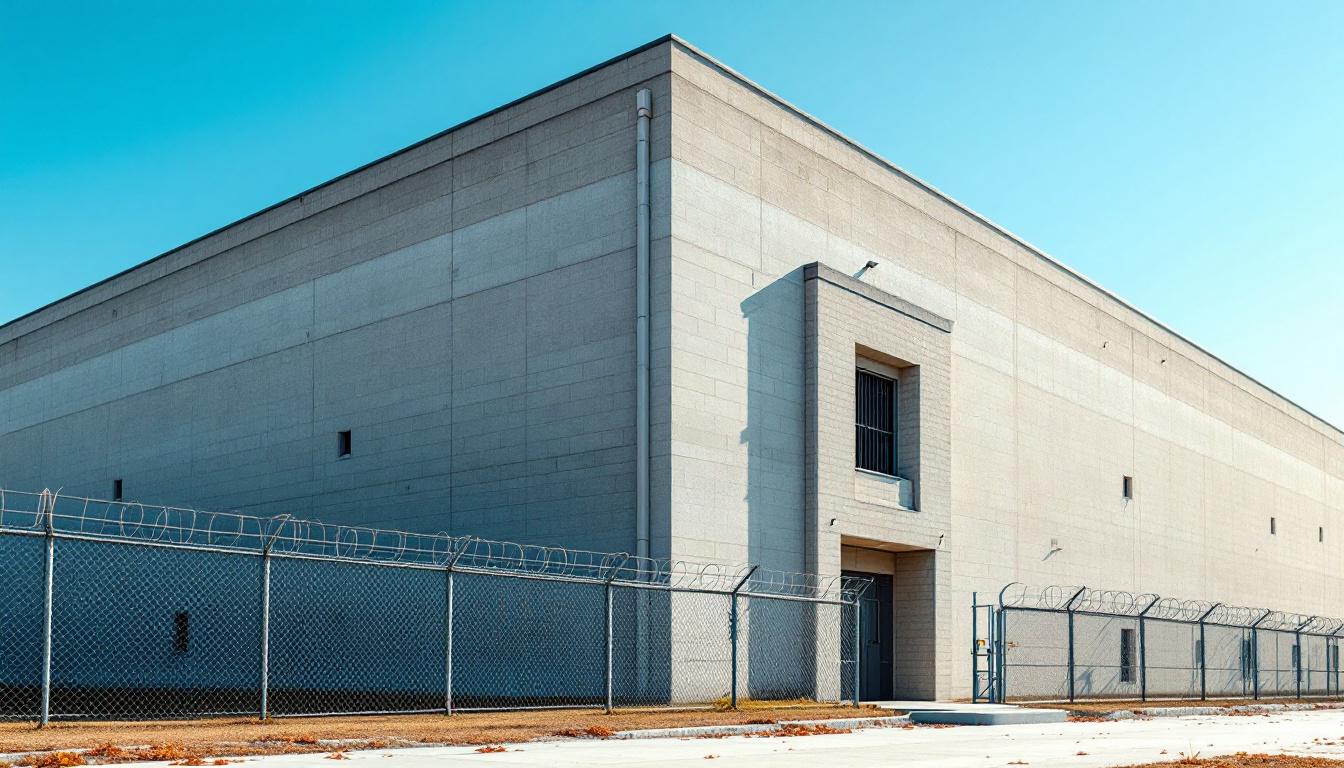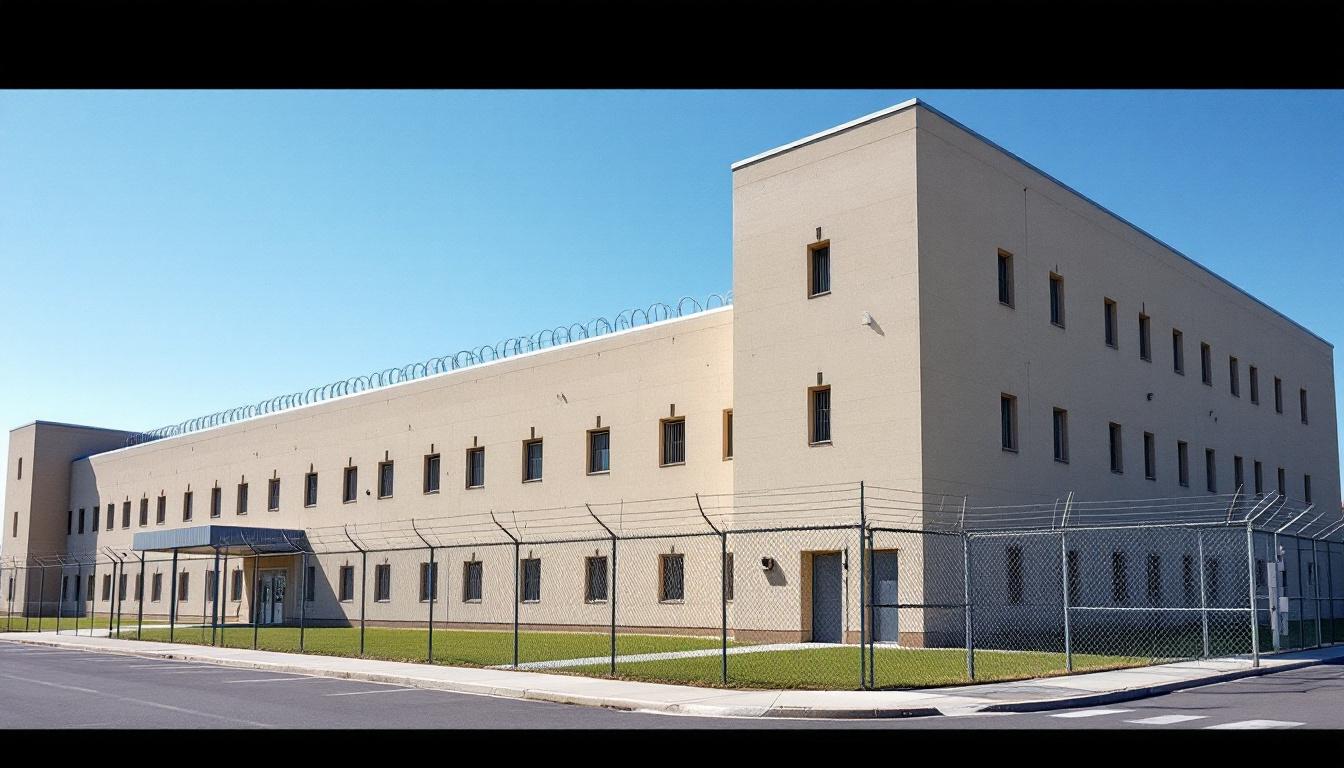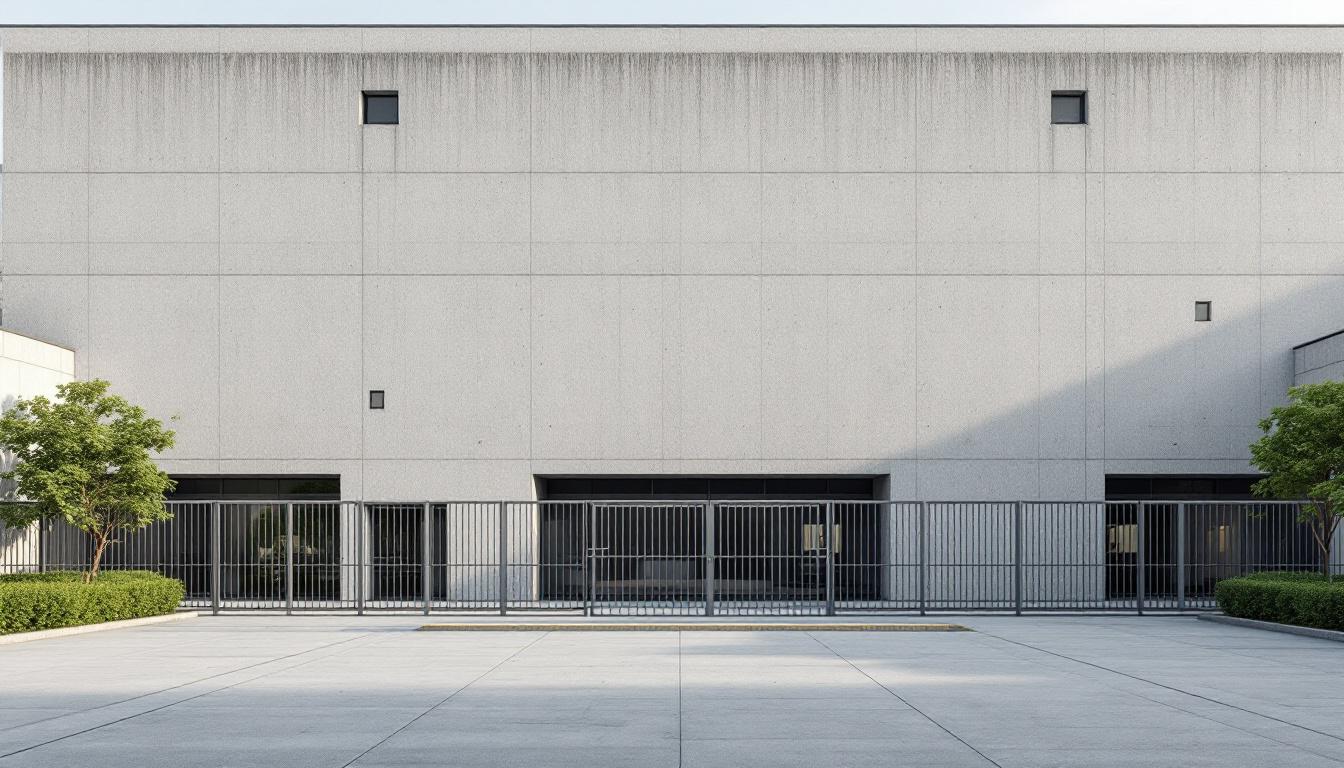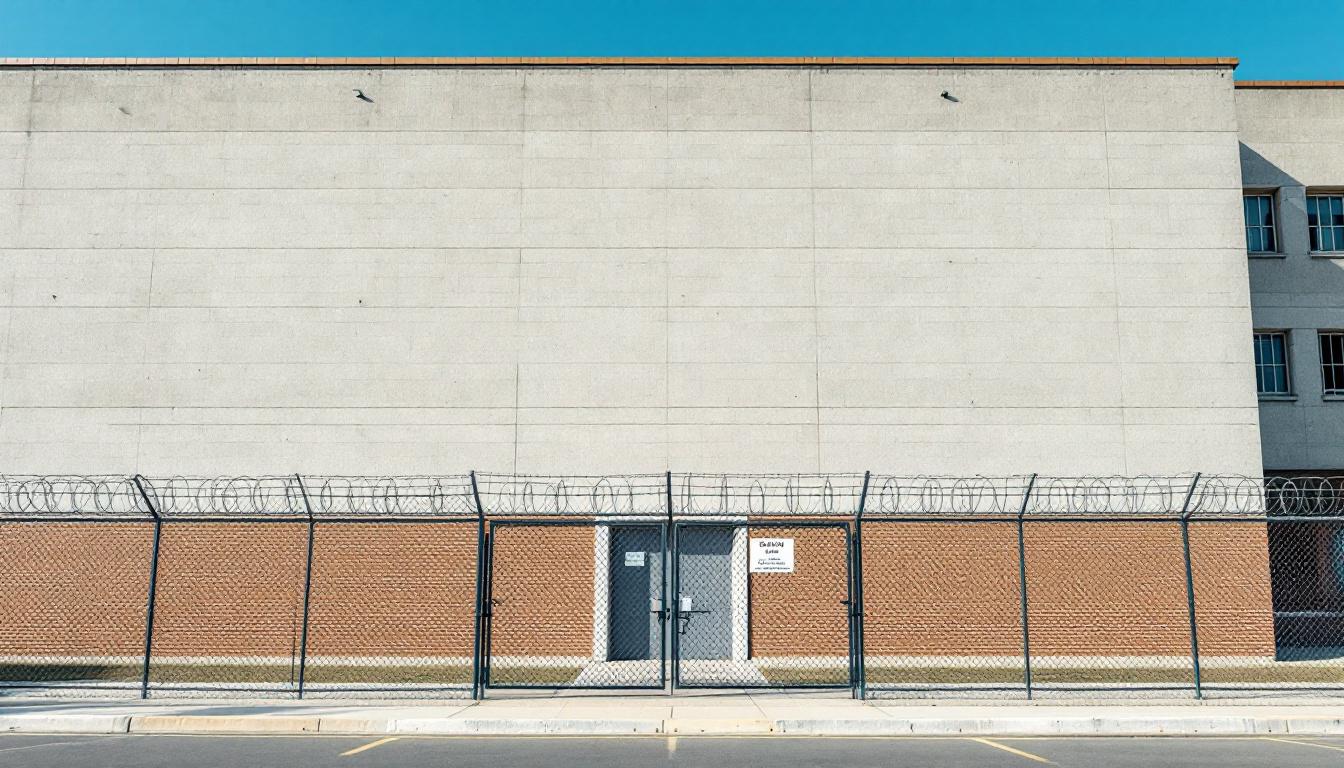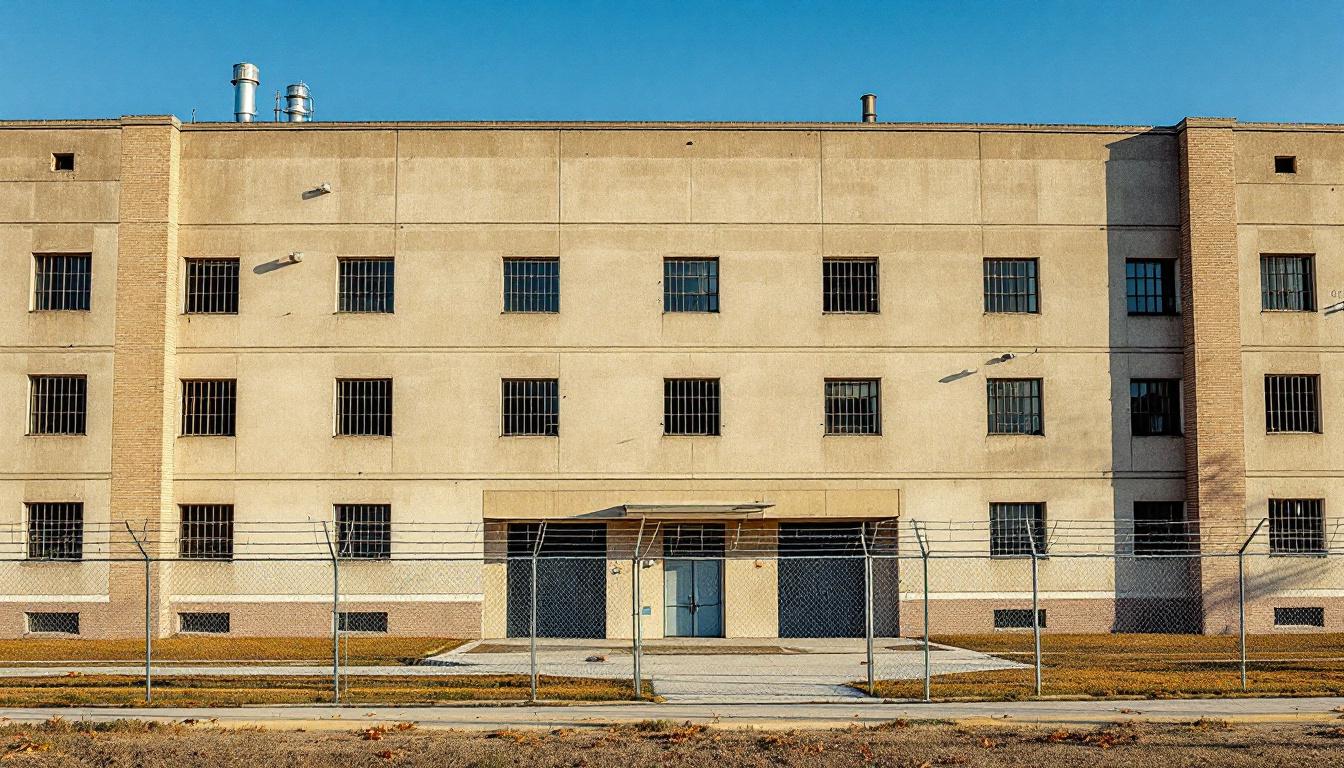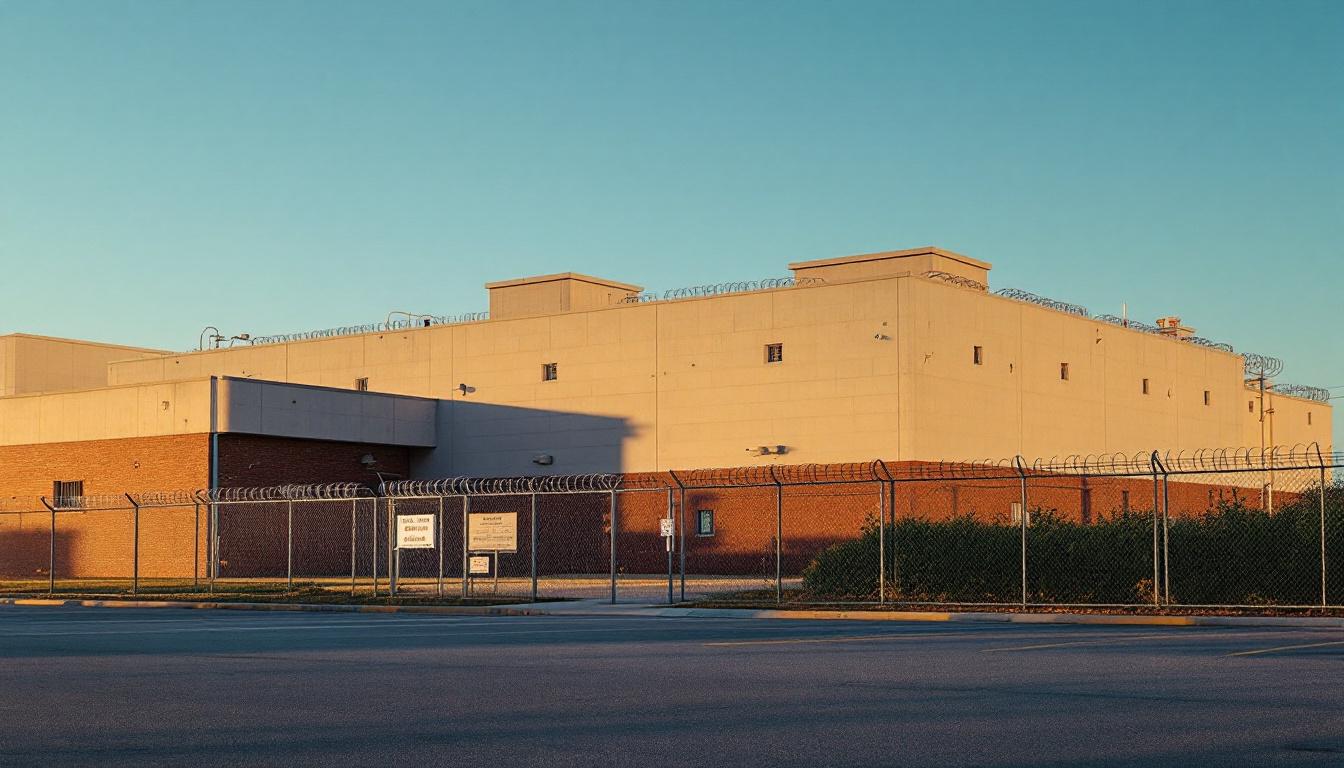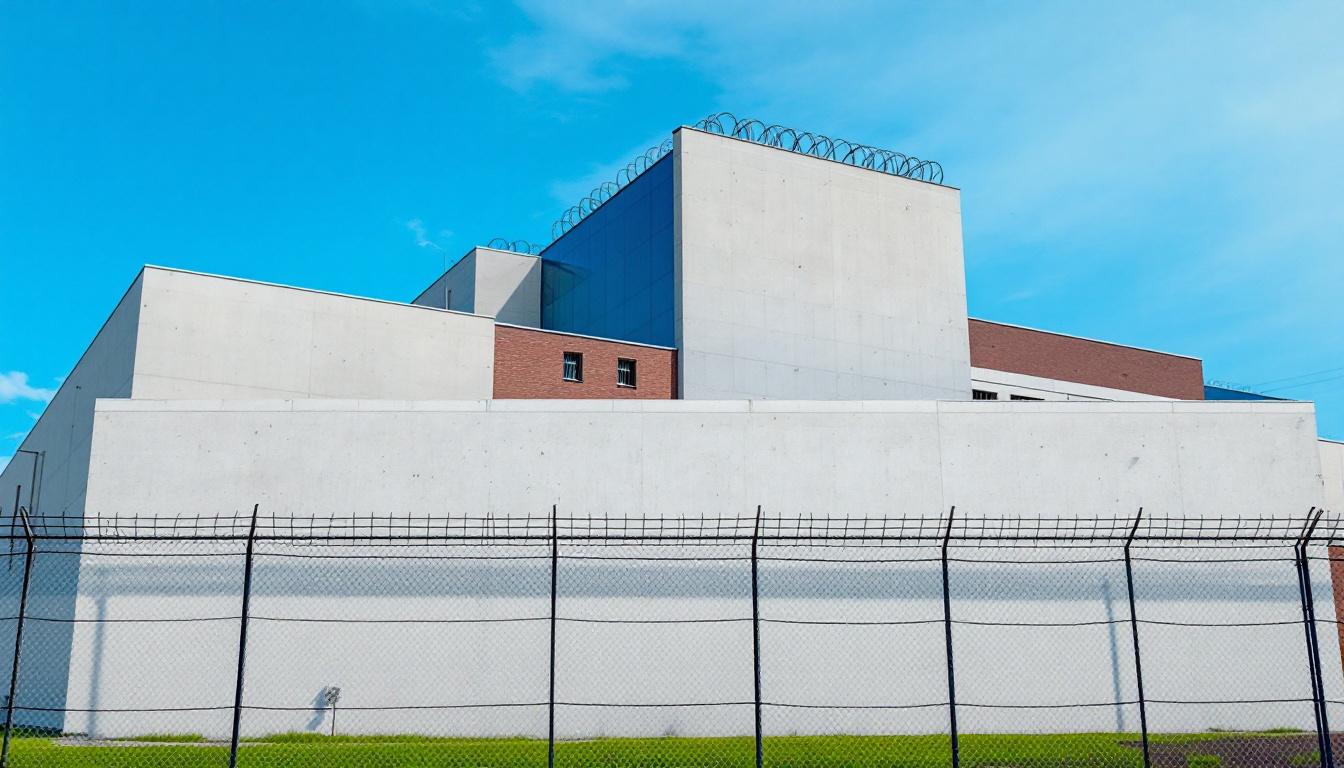
Quick Navigation
How to contact an inmate at Cooper Street Correctional
This comprehensive guide will walk you through how to connect with an inmate at Cooper Street Correctional. Follow the steps below to find an inmate and send letters and photos:
- Search for the inmate using our search tool below
- Create your account or log in to Penmate
- Write your message (up to 6,000 characters)
- Send instantly - inmates receive printed copies daily
Find an Inmate
Search for an inmate to start communicating today
Tip: You can search by first name, last name, or inmate ID number
To contact a person at Cooper Street Correctional start by searching for the person on the official facility website. Perform a search by following these steps:
- Step 1: Enter their first name and last name into the search form and click "Search"
- Step 2: Locate their inmate record
- Step 3: Write down their Inmate ID and any housing information provided
Important! Be sure to enter the person's full name. Nicknames should not be used.
How to Send Messages to Inmates

You can use your phone or computer to send emails, letters, and photos to an inmate. Messages are sent electronically to inmate tablets or kiosks at the facility. If you would like to send a message, start by searching for an inmate at Cooper Street Correctional.
Sending Photos and Postcards

A great way to send love and support to a loved one at Cooper Street Correctional is to send photos and postcards. It only takes a few minutes to send photos from your phone and it makes a huge difference. You can also mail postcards with words of support and inspiration, or design your own postcard for special moments like birthdays and holidays.
Important! Be sure not to send any explicit photos or they may not be approved by the facility. You can also use a photo printing app like Penmate to make sure your photos are printed at the correct size (4x6 or 3x5) and are mailed according to the rules and regulations of Cooper Street Correctional.
Frequently asked questions about Cooper Street Correctional
-
How long does it take to deliver a message?
If you're sending an email message your letter is usually delivered within 24-48 hours. For messages sent via mail you should expect delivery within 3-7 days. All messages will need be approved by Cooper Street Correctional.
-
How much does it cost to send a message to Cooper Street Correctional?
You can send a message free using your phone or mail a message via USPS for the price of a $0.60 stamp and envelope. You can also purchase credits or e-stamps from services starting at $1.99.
-
What services can I use to contact an inmate at Cooper Street Correctional?
Penmate
You can use Penmate to send letters and photos to an inmate from your phone. It's an easy way to stay in touch during your loved one's incarceration. Use the inmate locator to find an inmate's location and contact information, then you can send messages within a few minutes.
Securus messaging
Securus may be another option for communicating with an inmate at Cooper Street Correctional. You can create a friends and family account and purchase credits to send messages. All messages will be reviewed and must be approved by the facility.
JPay
Some county jails and state prisons may support sending messages with JPay. You must register an account with the system, find your loved one, and purchase stamps to send messages. For some locations you can also attach photos.
Smart Jail Mail
You may also check if Smart Jail Mail is available at Cooper Street Correctional. Smart Jail Mail is operated by Smart Communications and has contracted with some state and county jails. After purchasing credits, your messages and photos are sent to the facility, printed out, and then handed out to your loved one.
-
What is the mailing address of Cooper Street Correctional?
Mailing address:
Cooper Street Correctional
3100 Cooper St
Jackson, MI 49201
Phone: (517) 780-6175Business hours:
- Monday: 5:00 – 9:30 PM
- Tuesday: Closed
- Wednesday: Closed
- Thursday: 5:00 – 9:30 PM
- Friday: 5:00 – 9:30 PM
- Saturday: 10:00 AM – 9:30 PM
- Sunday: 10:00 AM – 9:30 PM
-
What are the visiting hours at Cooper Street Correctional?
Visiting hours at Cooper Street Correctional vary by housing unit and security level. Generally, visits are scheduled on weekends and holidays, with some facilities offering weekday visits. Contact the facility directly at (517) 780-6175 or check their website for the current visiting schedule. Visits typically last 30-60 minutes and must be scheduled in advance.
-
What items are prohibited when sending mail to Cooper Street Correctional?
Prohibited items typically include: cash, personal checks, stamps, stickers, glitter, glue, tape, staples, paperclips, polaroid photos, musical or blank greeting cards, hardcover books, magazines with staples, and any items containing metal or electronics. Only send letters on plain white paper with blue or black ink. Photos must be printed on regular photo paper (no Polaroids). Always check with Cooper Street Correctional for their specific mail policies.
-
How do I send money to an inmate at Cooper Street Correctional?
You can send money to an inmate at Cooper Street Correctional through several methods: 1) Online using JPay, Access Corrections, or the facility's approved vendor, 2) Money orders mailed directly to the facility with the inmate's name and ID number, 3) Kiosks located in the facility lobby, or 4) Over the phone using a credit or debit card. Fees vary by method, typically ranging from $2.95 to $11.95 per transaction.
-
Can I schedule a video visit with an inmate at Cooper Street Correctional?
Many facilities now offer video visitation as an alternative to in-person visits. At Cooper Street Correctional, video visits may be available through services like Penmate, Securus Video Connect, GTL, or ICSolutions. Video visits typically cost $10-20 for 20-30 minutes and must be scheduled in advance. You'll need a computer or smartphone with a camera and reliable internet connection. Contact the facility for their specific video visitation policies and approved vendors.
-
What identification do I need to visit an inmate at Cooper Street Correctional?
All visitors must present valid government-issued photo identification such as a driver's license, state ID, passport, or military ID. Minors must be accompanied by a parent or legal guardian who can provide the minor's birth certificate. Some facilities require visitors to be on the inmate's approved visitation list, which may require a background check. Contact Cooper Street Correctional for specific ID requirements and visitor approval procedures.
-
How can I find out an inmate's release date?
To find an inmate's release date at Cooper Street Correctional, you can: 1) Use the online inmate search tool if available, 2) Call the facility's records department, 3) Contact the inmate's case manager or counselor, or 4) Have the inmate provide this information during a call or visit. For privacy reasons, some facilities only release this information to immediate family members.
Facility Overview
Contact Information
Cooper Street Correctional3100 Cooper St
Jackson, MI 49201
Phone: (517) 780-6175
Official Website

About Cooper Street Correctional
Rehabilitation and public safety form the cornerstone mission that drives daily operations throughout Cooper Street CF, where comprehensive programming meets the diverse needs of individuals within Michigan's correctional system. Located in Jackson, this facility serves as an integral component of the state's broader commitment to reducing recidivism while maintaining secure custody for those incarcerated services and support.
The operational philosophy at Cooper Street CF typically emphasizes structured daily routines that may include educational opportunities, vocational training programs, and behavioral intervention services designed to address underlying factors contributing to criminal behavior. Staff members generally work to create an environment where inmates can access resources that support personal growth and skill development, often collaborating with community organizations throughout the Jackson area to provide continuity of care and support networks that extend beyond incarceration.
Community partnerships frequently play a vital role in the facility's approach to preparing individuals for successful reintegration into society. These collaborative relationships may encompass workforce development initiatives, substance abuse counseling, mental health services, and family reunification programs that recognize the importance of maintaining positive connections with loved ones. Through this comprehensive framework, Cooper Street CF works to balance the dual responsibilities of public safety and offender rehabilitation within Michigan's correctional landscape.
Programs & Services
Personal transformation begins with access to meaningful opportunities that address individual needs and circumstances. Cooper Street CF typically furnishes a comprehensive range of offerings designed to support those incarcerated in developing essential skills and addressing underlying issues. The facility's approach emphasizes structured programming that may help participants build foundations for successful community reintegration while maintaining a secure environment.
Educational advancement forms a cornerstone of the facility's development strategy. Vocational education offerings often include hands-on training in trades that may provide marketable skills upon release. Furthermore, traditional education programs typically support those incarcerated in completing basic educational requirements or pursuing advanced learning opportunities. These structured learning environments may help participants develop both technical competencies and academic knowledge within a secure setting.
Therapeutic and support services address the complex challenges many face during incarceration. Sex offender treatment programs may furnish specialized interventions for those requiring this specific type of support. Furthermore, the prisoner reentry initiative typically connects participants with community resource connections that may assist with the transition process. Music programs often provide creative outlets for personal expression, while restorative justice offerings may help those incarcerated understand the impact of their actions and develop accountability. These comprehensive support services work together to address various aspects of personal development and community preparation.
Daily Life & Visitation
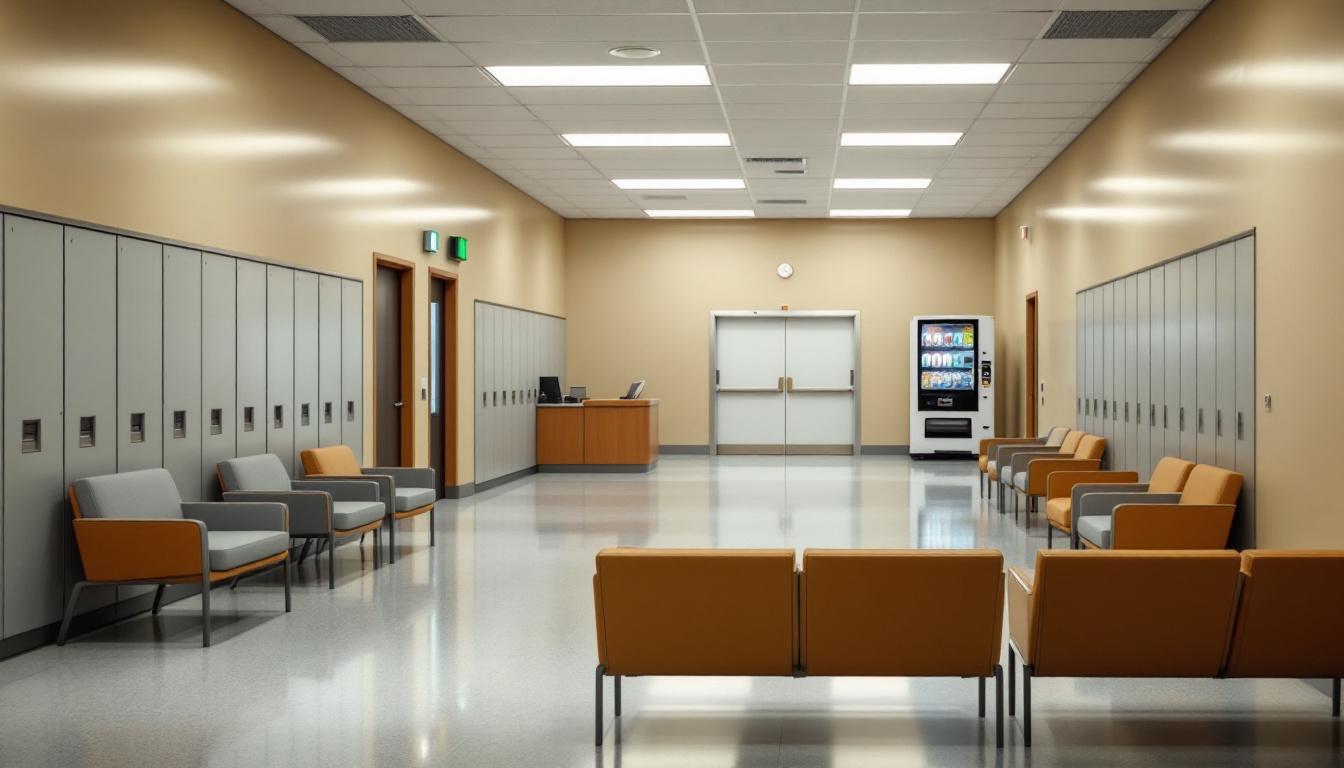
Building connections with family and maintaining relationships with the outside community remain central priorities for those incarcerated at Cooper Street CF. Today's structured environment consistently provides opportunities for social interaction and community engagement through various programming and communication channels. The facility typically operates on a predictable daily schedule that furnishes stability while allowing residents to participate in meaningful activities and maintain important personal relationships.
Furthermore, living accommodations generally consist of shared housing units that encourage positive social dynamics among residents. Those incarcerated typically reside in dormitory-style or cell-based housing arrangements, depending on security classification and program participation. Meals are usually served in common dining areas at scheduled times throughout the day, creating natural opportunities for social interaction and community building. Although security protocols guide daily operations, the environment generally supports relationship-building among residents and with staff members.
The facility typically offers various recreational activities, exercise opportunities, and structured programming that help residents stay connected to their communities. Work assignments may include kitchen duties, maintenance tasks, or facility operations that provide valuable skills and daily structure. Visitation policies generally allow regular contact with family members and approved visitors, while communication options typically include telephone access and correspondence privileges. These connections often serve as crucial support systems that help those incarcerated maintain ties to their home communities and prepare for eventual reintegration.
Ready to Connect?
Start communicating with your loved one today
Search for an Inmate
